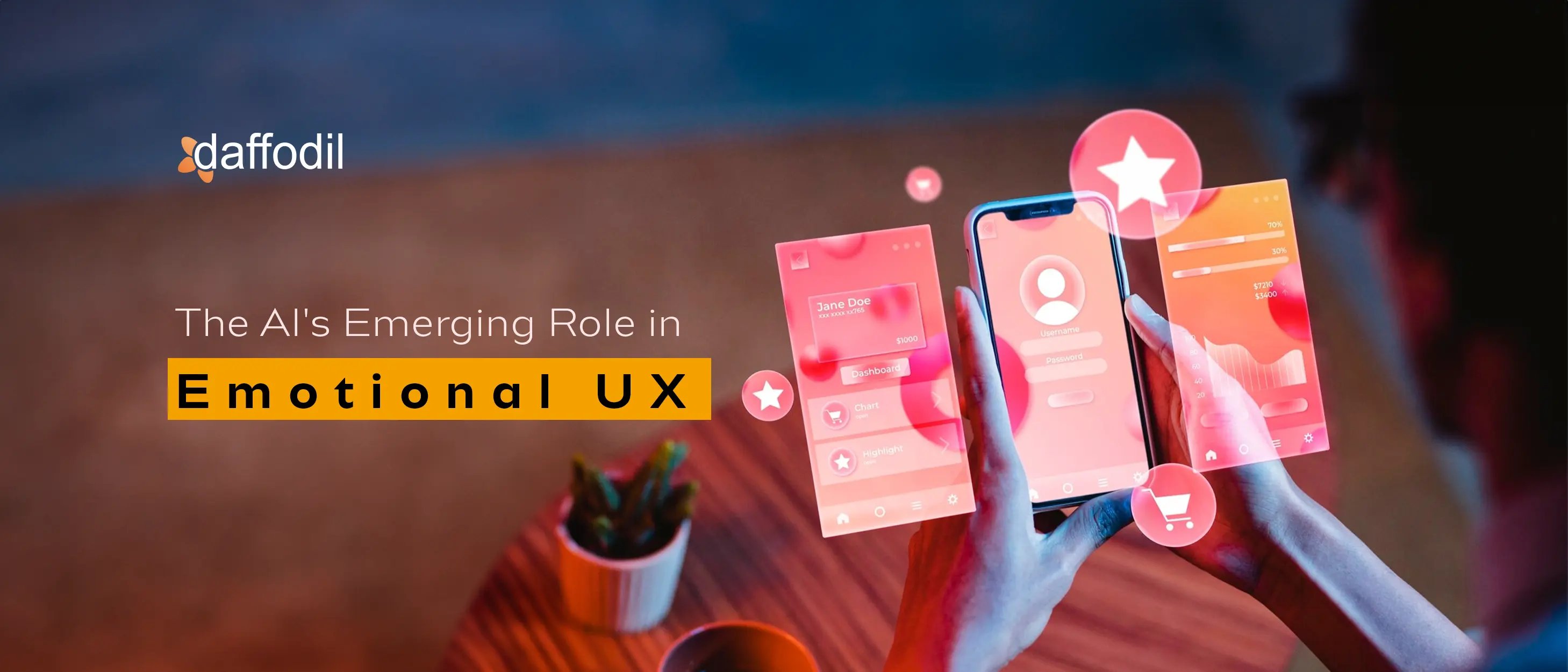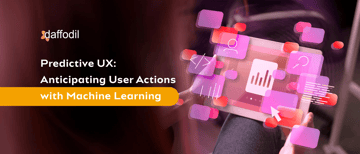
Artificial intelligence (AI) solutions are redefining daily life and global business operations, offering unprecedented speed and efficiency that surpass human capabilities. However, as this new "intelligence" unfolds, a critical question arises: Can it embody qualities beyond mere logic and reasoning? Specifically, will emotion play a role in AI's functionality, and can it ever rival human capacity for sensing and feeling?
According to a report by Harvard Business Review, the era when AI technology can comprehend and replicate human emotions is approaching.
The Transformation of AI: From Reasoning to Emotion
At the beginning, AI was all about crunching numbers and analyzing data with precision. Think of big computer rooms filled with servers and complicated code. But today, AI has moved beyond just calculations – it can also understand "feelings," although it's more like a computer's interpretation of emotions.
Initially, AI was focused on being proficient at tasks that needed a lot of brainpower. But these tasks didn't really capture the emotional side of things. As people realized how important emotions are in our decision-making and how we communicate, AI started to change. Human decisions and actions are heavily influenced by emotions, mixing thinking with feelings rather than just being logical.
Seeing how emotions affect human behavior, experts started thinking about how to make AI understand emotions too. This shift brought in a new era of AI, one that's not just about numbers but also about understanding and sometimes acting like humans do emotionally.
This new approach aims to make communication between machines and humans better. It recognizes that modern AI is about more than just numbers – it involves understanding emotions, tailoring interactions based on how people feel, and supporting mental well-being. With these changes, AI is stepping into the world of human emotions.
The Emerging Role of AI in Emotional UX
Recall the last commercial you watched. Did it evoke amusement, confusion, or influence your purchasing decision? While you may not recall your exact sentiments, machines are increasingly capable of doing so. Emerging artificial intelligence technologies are learning to discern and interpret human emotions, leveraging this understanding to enhance various aspects, from marketing strategies to healthcare practices.
Termed "emotion AI," this subset of AI endeavors to measure, comprehend, replicate, and respond to human emotions. It is also referred to as affective computing or artificial emotional intelligence, with roots tracing back to at least 1995 when MIT Media Lab professor Rosalind Picard introduced the concept of "Affective Computing."
Javier Hernandez, a research scientist at MIT Media Lab's Affective Computing Group, describes emotion AI as a tool facilitating more natural interactions between humans and machines. He explains that akin to human interactions, where individuals gauge emotions through facial expressions and body language, emotion AI enables machines to adjust their interactions based on users' emotional states. Without understanding emotions, machines struggle to effectively convey information or predict users' responses to specific content.
As per the survey, this distinct market segment "affective computing," is projected to reach a market size of approximately USD 140.0 billion by 2025.
Tech giants have already recognized the potential of Emotion AI in enhancing user experiences. Amazon, for instance, is enhancing its virtual assistant, Alexa, to develop a more personalized relationship with users by analyzing the emotional cues in their voices. VentureBeat suggests that this approach could enable Alexa to offer tailored responses based on users' moods.
Similarly, Apple is forging ahead in human-technology interactions with acquisitions like Emotient, a startup utilizing facial recognition for emotion identification, and VocalIQ, which employs deep neural nets for speech recognition. These technologies have the potential to revolutionize various areas, including customer interactions, mental health support, and security measures. In this emerging landscape, players like Daffodil, specializing in AI for automotive, are also making significant strides.
The implications of emotion analysis are vast, with the most apparent being the integration of emotional intelligence into AI-driven interactions, supplementing the logic-driven approaches prevalent today. This could enable companies and brands to foster deeper, more personalized connections with customers, elevating the significance of every interaction.
Use Cases of Emotional AI Across Industries
1) Healthcare
One significant application of understanding emotions through AI is seen in healthcare. Providing care for dementia patients is emotionally taxing for medical professionals. They often experience burnout, which can affect the quality of care. Emotionally intelligent AI robots can assist in caring for dementia patients without experiencing burnout themselves. They serve as intermediaries between medical staff and patients, gathering information and refining treatment plans alongside doctors, and monitoring patients and assisting with day-to-day care alongside nurses. Consistent empathetic care from these AI assistants has shown to improve outcomes for dementia patients.
2) Advertising
In advertising, Affectiva, a Boston-based emotion AI company, specializes in automotive AI and advertising research, serving a quarter of Fortune 500 companies. Their technology captures subconscious reactions that strongly correlate with consumer behavior, such as sharing an ad or purchasing a product. With user consent, Affectiva's technology uses phone or laptop cameras to capture reactions to ads, providing real-time insights for marketers.
3) Customer Service
Cogito, another company founded by MIT alumni, offers technology for call centers that helps agents identify customer moods during phone conversations and adjust their approach accordingly. They also provide mental health monitoring through CompanionMx, an app that analyzes voice and phone use for signs of anxiety and mood changes, aiding in self-awareness and stress reduction.
4) Mental Health Monitoring and Coping
In mental health, emotion AI plays a role in monitoring and coping. Wearable devices can detect changes in heart rate to indicate stress or frustration, releasing scents to help the wearer manage their emotions. Additionally, algorithms using phone data and wearables can predict levels of depression. These technologies aim to improve mental well-being and coping skills.
5) Automotive Safety
In automotive applications, emotion AI is being integrated into vehicles to enhance safety. By detecting driver emotions, such as stress or distraction, cars can adjust settings to improve safety and the driving experience. Affectiva offers similar services, monitoring driver states to enhance road safety.
6) Assistive Technology for Autism
For individuals with autism, emotion AI serves as assistive technology, aiding in emotional communication. Wearable monitors can detect subtle cues in facial expressions or body language that may be challenging for individuals with autism to interpret. Additionally, communicative prostheses help autistic individuals learn to recognize facial expressions, facilitating engagement with others.
7) Personalized Content Recommendations
Even streaming giants such as Netflix and Spotify are amassing vast amounts of user data to refine their services. Employing sophisticated empathetic algorithms, these platforms analyze user preferences, viewing history, search behavior, and contextual factors like time and mood. This comprehensive understanding enables them to offer personalized recommendations, curated playlists, and tailored content suggestions, fostering deeper emotional connections with individual users.
Overall, emotion AI is finding applications across various industries, from healthcare to streaming services, aiming to improve emotional understanding and communication in diverse contexts.
ALSO READ: 20 Uses of Artificial Intelligence in Day-to-Day Life
Elevate Your User Experience with Our AI expertise
At the heart of empathetic AI lies its reliance on extensive training data. To truly comprehend human emotions, AI systems must be fed a diverse range of data covering various emotional scenarios. This could include sentiments expressed in written reviews or the subtle shifts in tone found in voice recordings.
However, decoding human emotion is far from simple. It's a complex endeavor, layered with intricacies. Differentiating between sarcasm and genuine praise, or discerning sadness from contemplation, can be exceedingly subtle. Teaching AI to recognize these nuances becomes even more daunting when factoring in cultural or individual differences.
Nevertheless, amidst these challenges, empathetic AI has achieved notable successes. This exploration of emotion-focused AI not only showcases the wonders of technological progress but also serves as a guiding light, illuminating the path ahead—a path marked by obstacles to overcome and milestones to achieve.





